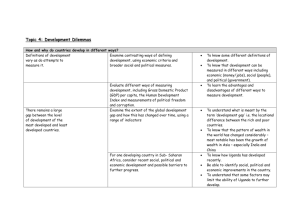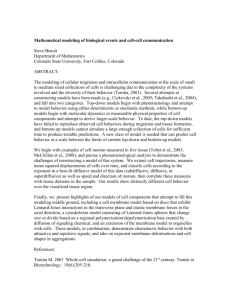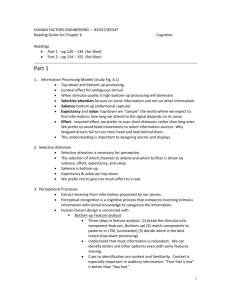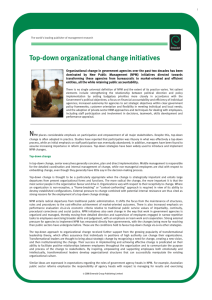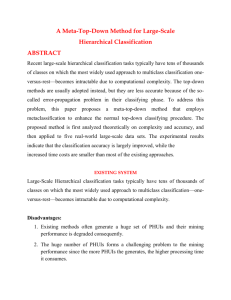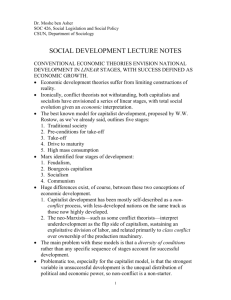This is a “bottom-up” approach to sociology.
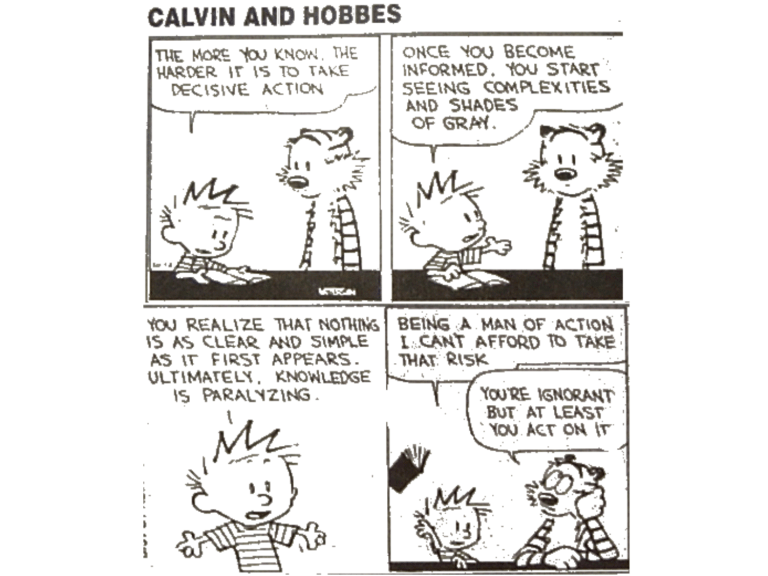
How is getting dressed in the morning a social activity?
Three Theoretical Paradigms
• Structural Functionalism
– Society is viewed as composed of various parts, each with a function that, when fulfilled, contributes to society’s equilibrium
• Conflict Theory
– Society is viewed as composed of groups that are competing for resources
• Symbolic Interactionism
– Society is viewed as composed of symbols that people use to establish meaning, develop their views of the world, and communicate with one another
Harold Garfinkel
Talcott Parsons
“Parsonian Functionalism”
• Major theoretical perspective in mid-20 th century
– Attempts to explain how societies maintain stability and order
• Focuses on roles of social institutions, and how they maintain social stability
• People have internalized rules and norms, that’s why we see orderly behavior
• If behaviors exist, they are there because they serve a function maintaining order
“Top-Down”
When a scientist looks through a
“top-down” lens, she sees:
Objective, pre-existing social forces
(such as norms)
Cause/produce
An orderly society
Any sociological theory used to explain social phenomena is a top-down approach to sociology.
Harold Garfinkel had some problems with top-down approaches.
Garfinkel Said:
• Functionalism assumes that only people with the correct theoretical lenses can make sense of society
• Ordinary people do see the world as orderly; as a sensical place
• Functionalists like Parsons were ignoring all the work that ordinary people do every day to make sense of the world
Garfinkel Said:
• Everyone has procedures they use to make sense of the world, and
• PEOPLE ACHIEVE THE ORDER OF THE
SOCIAL WORLD!
This is a
“bottom-up” approach to sociology.
When a scientist looks through a
“top-down” lens, she sees:
Objective, pre-existing social forces
(such as norms)
Cause/produce
An orderly society
The appearance of an orderly society
(and the very reality/objectivity of the social world)
Produce/achieve
People’s sense-making activities and procedures
THE WORK
IS THE ORDER!
So while top-down sociological approaches ask:
Why is the social world the way it is?
What are the social forces at work?
The bottom-up sociological approach asks:
How do we achieve a social world that seems objective and pre-existing?
These are fundamentally different questions, seeking different answers.
Both, top-down and bottom-up, are valid and useful approaches to sociology.
WE DO
Ethnomethodology
• Ethno = members
• Methodology = methods
• Members’ methods for achieving social order
“Knowledge kept private is powerless, and experience unshared is nothing."
-- Amelia Hill
Story Time!
Here’s another example:
Gender
• In a top-down approach, a sociologist might ask: “Why don’t males cry as often as females?”
Gender roles (males are taught not to show emotions)
Affect
Behavior (males don’t cry as often as females)
Gender
• In a bottom-up approach, an ethnomethodologist might ask: How is the reality of gendered behavior produced?
The reality of “gendered behavior”
Produce/achieve
People’s sense-making activities/procedures (what we do)

